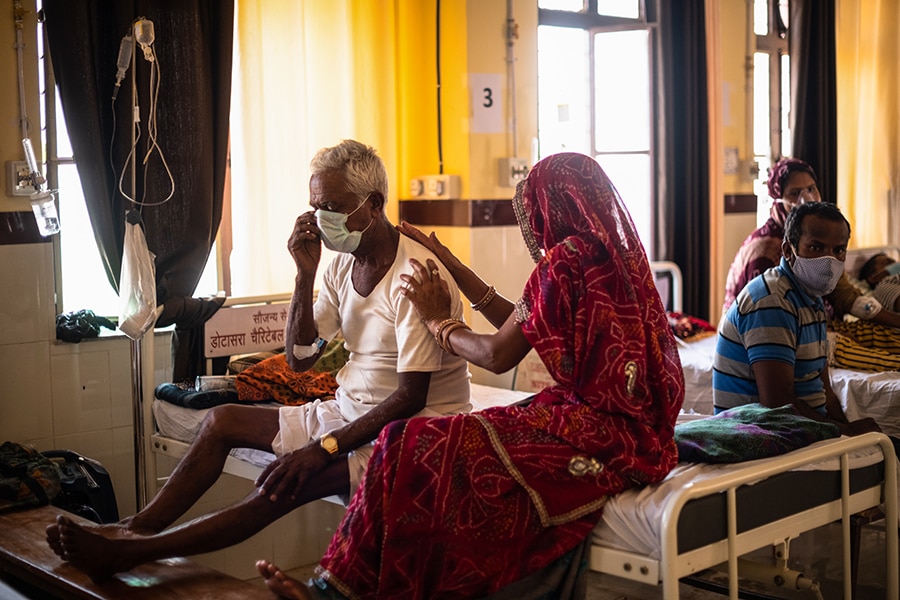
Will new Covid-19 treatments be as elusive for poor countries as vaccines?
Nearly a year after the first Covid-19 vaccination campaigns began, the vast majority of the shots have gone to people in wealthy nations, with no clear path toward resolving the disparity
 A Covid treatment center in Rajasthan, India, in May, 2021. Merck, the maker of a new antiviral pill, will allow generic manufacturers in India to produce the pills at a far lower price in more than 100 poorer countries. Photo by Rebecca Conway/Getty Images
A Covid treatment center in Rajasthan, India, in May, 2021. Merck, the maker of a new antiviral pill, will allow generic manufacturers in India to produce the pills at a far lower price in more than 100 poorer countries. Photo by Rebecca Conway/Getty Images
Nearly a year after the first COVID-19 vaccination campaigns began, the vast majority of the shots have gone to people in wealthy nations, with no clear path toward resolving the disparity.
News this month that an antiviral medication had proved effective against the coronavirus in a large clinical trial has brought new hope of a turning point in the pandemic: a not-too-distant future when a simple pill could keep infected people from dying or falling severely ill.
The drug, molnupiravir, made by Merck, is easy to distribute and can be taken at home. The trial results showed it halved the risk of hospitalization and death among high-risk people early in their infections. The company has applied for emergency use authorization from the Food and Drug Administration; a decision could come in early December.
Unlike vaccine manufacturers Pfizer and Moderna, which have resisted calls for license agreements to let overseas manufacturers make their shots, Merck will allow generic manufacturers in India to sell the pills at a far lower price in more than 100 poorer countries. Most nations in sub-Saharan Africa, where vaccination rates are as low as 3%, are covered by the deal.
Drug access advocates say the Merck licensing deal is an encouraging start but only a small step toward equity. Merck has begun production of the drug, but it is unclear how much of the generic product will be available next year. The agreements leave out many undervaccinated nations, such as Ukraine, that have been hit hard by COVID-19. And an antiviral must be combined with reliable, affordable testing, which is also limited in many places.
©2019 New York Times News Service







